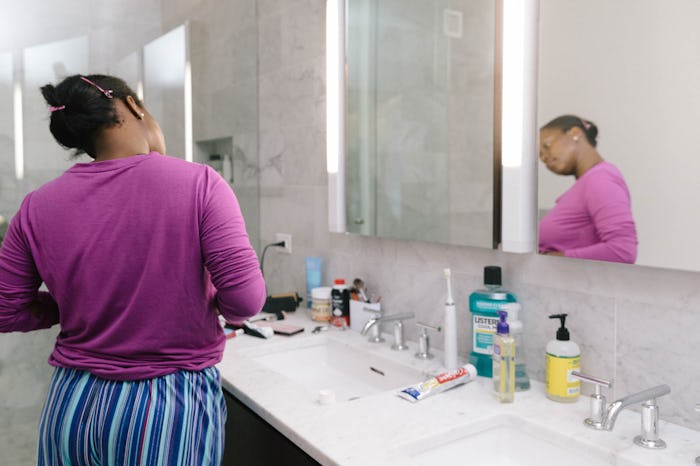Life
Will Your Period Be Heavier After Having A Baby? Experts Explain
Having a baby brings with it all the new things, like days where all you do is shower off bodily fluids, and sessions in front of a mirror where you wonder if that skin will ever travel back to its original spot. You’ll also earn some major up close and personal time with your vagina that involves wearing sanitary pads that are glorified diapers and, oh, more bodily fluids. When it comes to your lower half, you might also start to wonder about the return of your period. Like, will your period be heavier after having a baby or will PMS be different? Experts say the experience is different for every woman.
“This is a common question and varies widely,” Dr. Nichole Mahnert, OB-GYN at Banner-University Medicine Women’s Institute in Phoenix, Arizona, tells Romper in an email interview. “It can take time to resume normal menstrual cycles after having a baby, depending on how long you breastfeed and what type of contraception you use. Some women experience heavier periods, some lighter, and some go back to the exact same pre-pregnancy periods.”
Dr. Sherry Ross, OB-GYN and women’s health expert at Providence Saint John’s Health Center in Santa Monica, California agrees, adding that if a woman was using birth control before becoming pregnant, then she was probably used to a lighter and more regular period. That means that her period after baby might seem heavier when compared to her pre-baby experience.
“Periods following pregnancy can be erratic and heavy for many women, but it depends on how soon and what birth control is started after having a baby,” she tells Romper in an email interview.
Ross says that if you choose to not use hormonal birth control at six weeks postpartum, then your period will begin once you decrease breastfeeding frequency. If you are not breastfeeding, then you can expect to see the return of Aunt Flo around six to eight weeks after delivery, according to Parents.
“[Other] factors that can affect the flow and length of your period is your hormonal non-pregnant status or age,” Ross says. “Variations in your period are affected by many external variables.”
Sounds just like parenting, right? Different for everyone and completely unpredictable.
